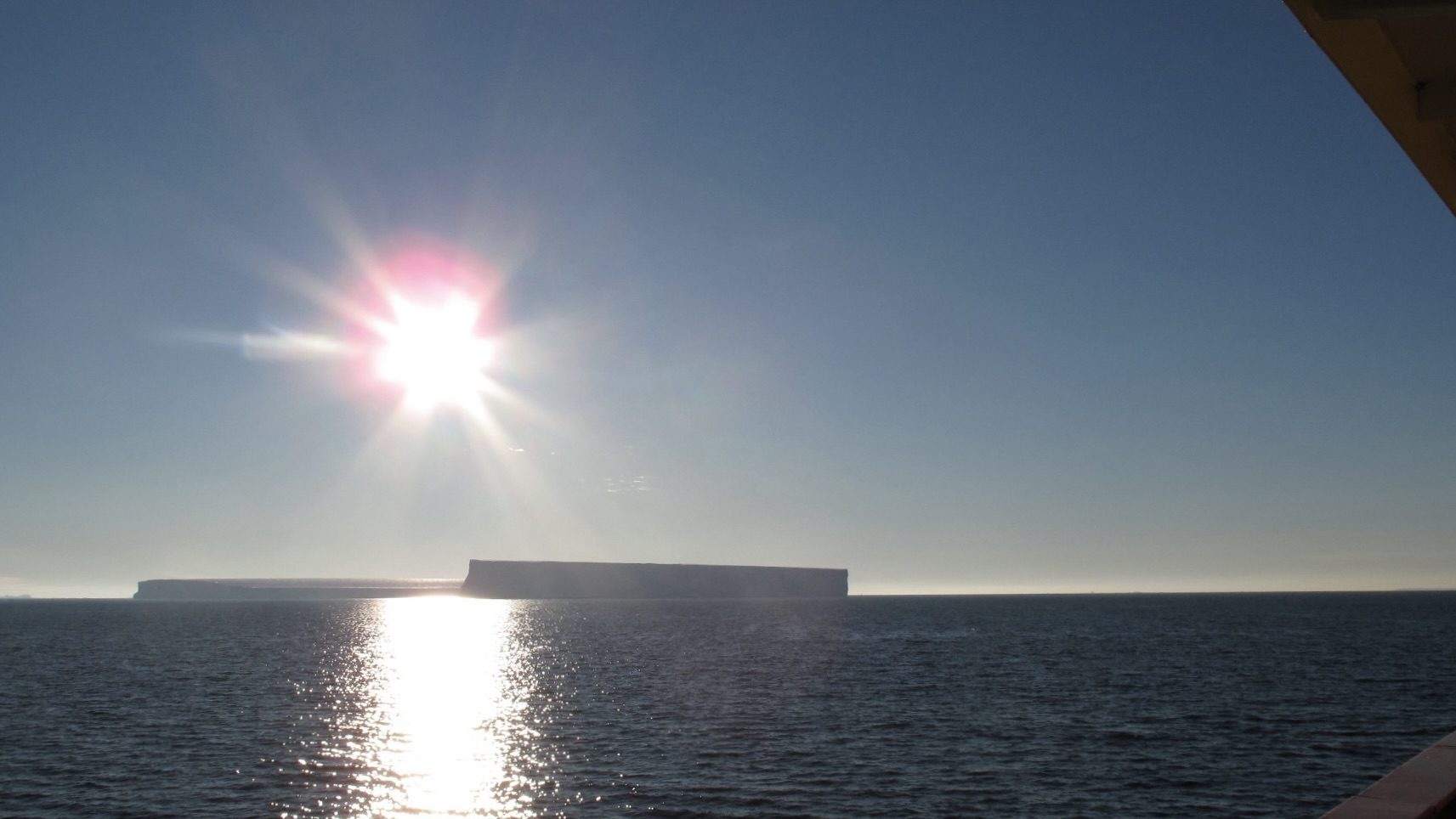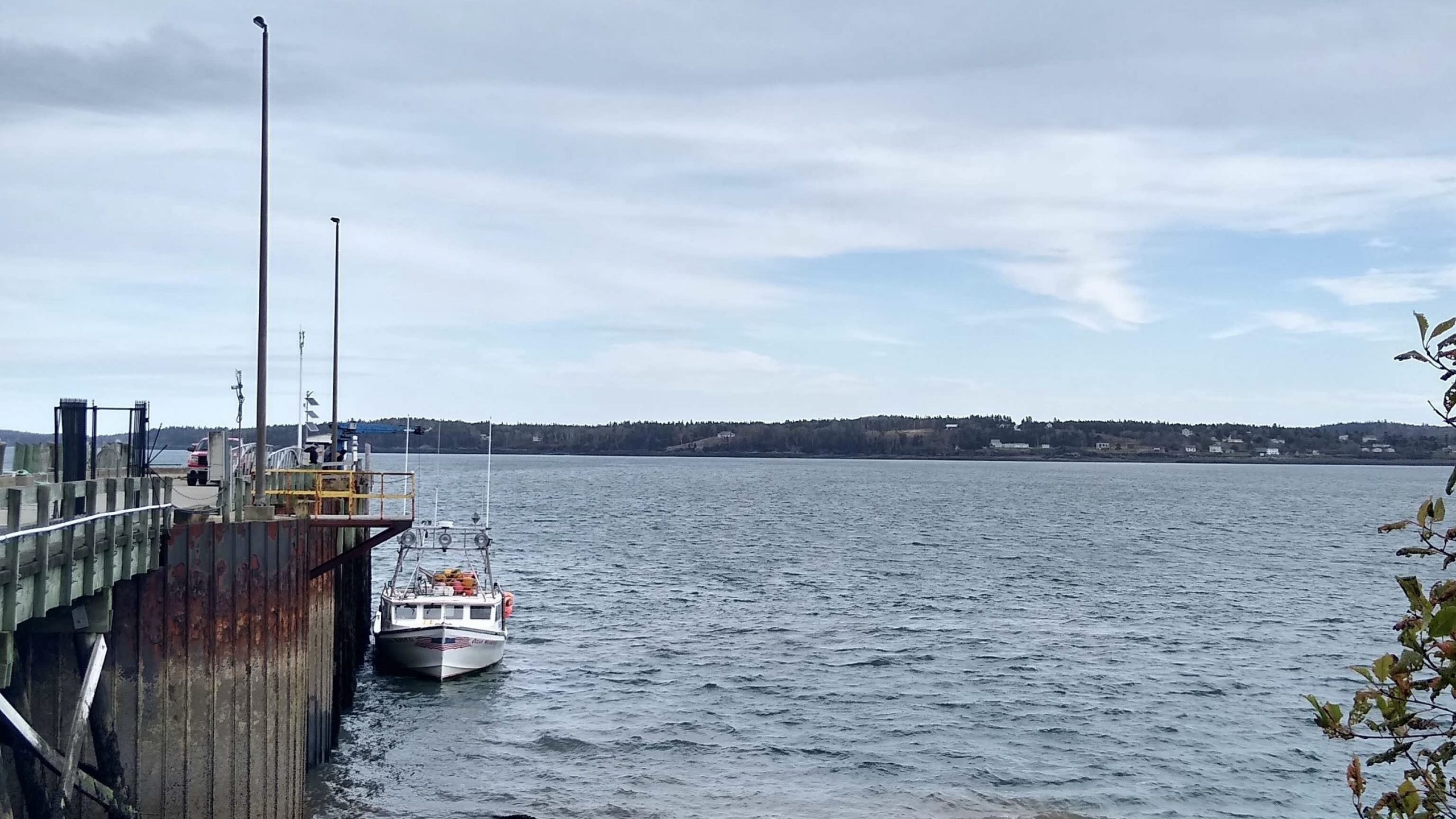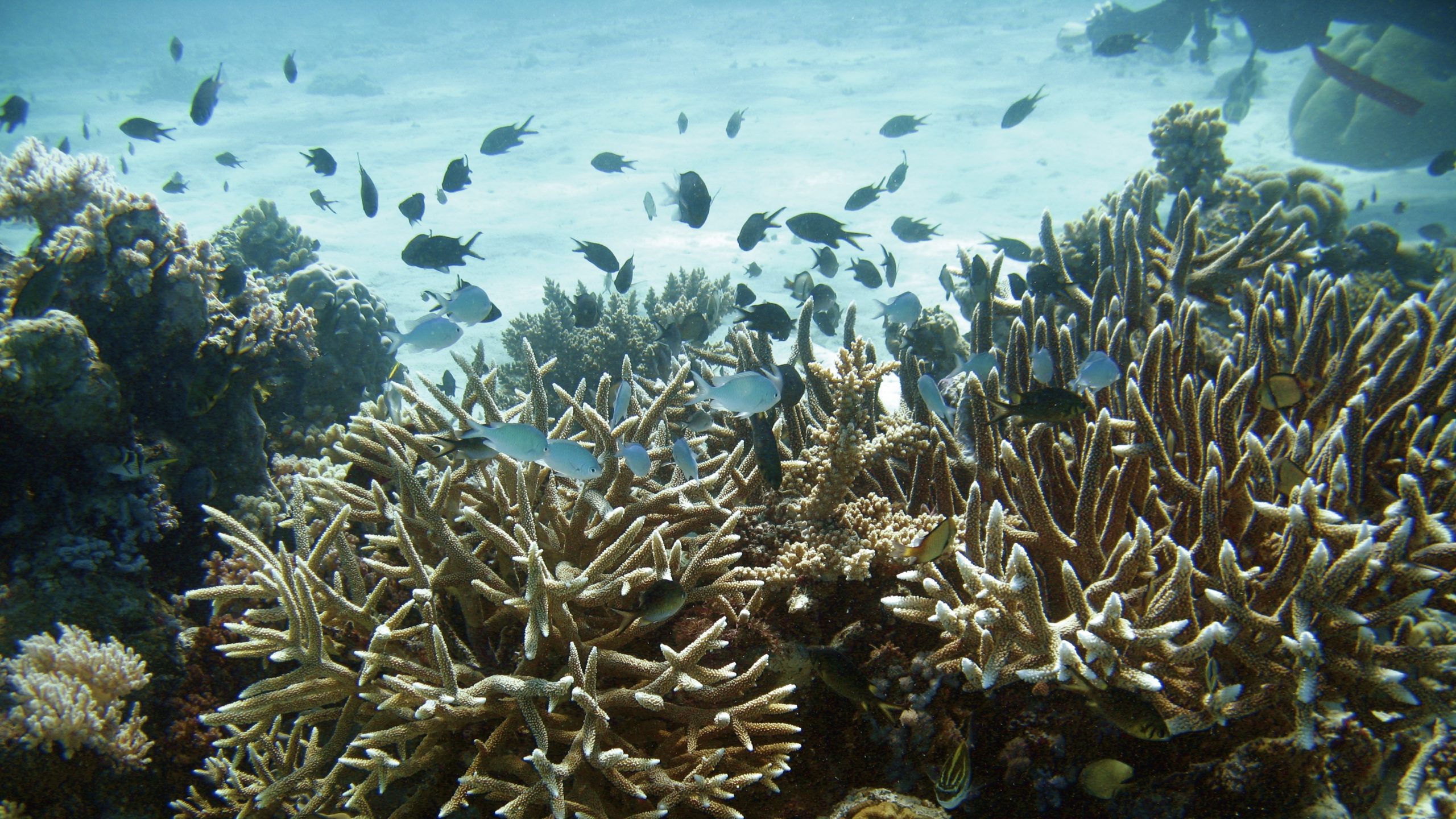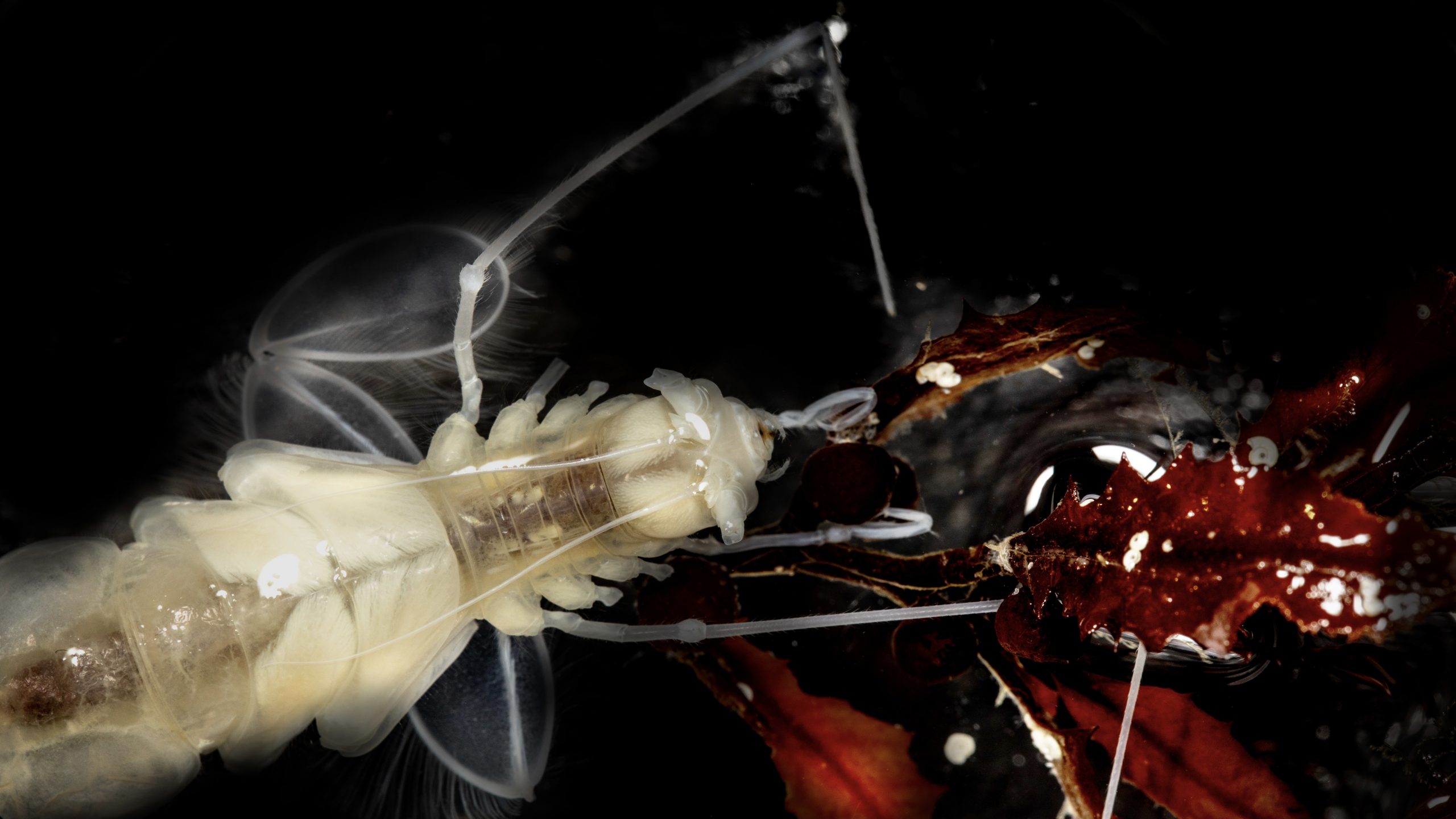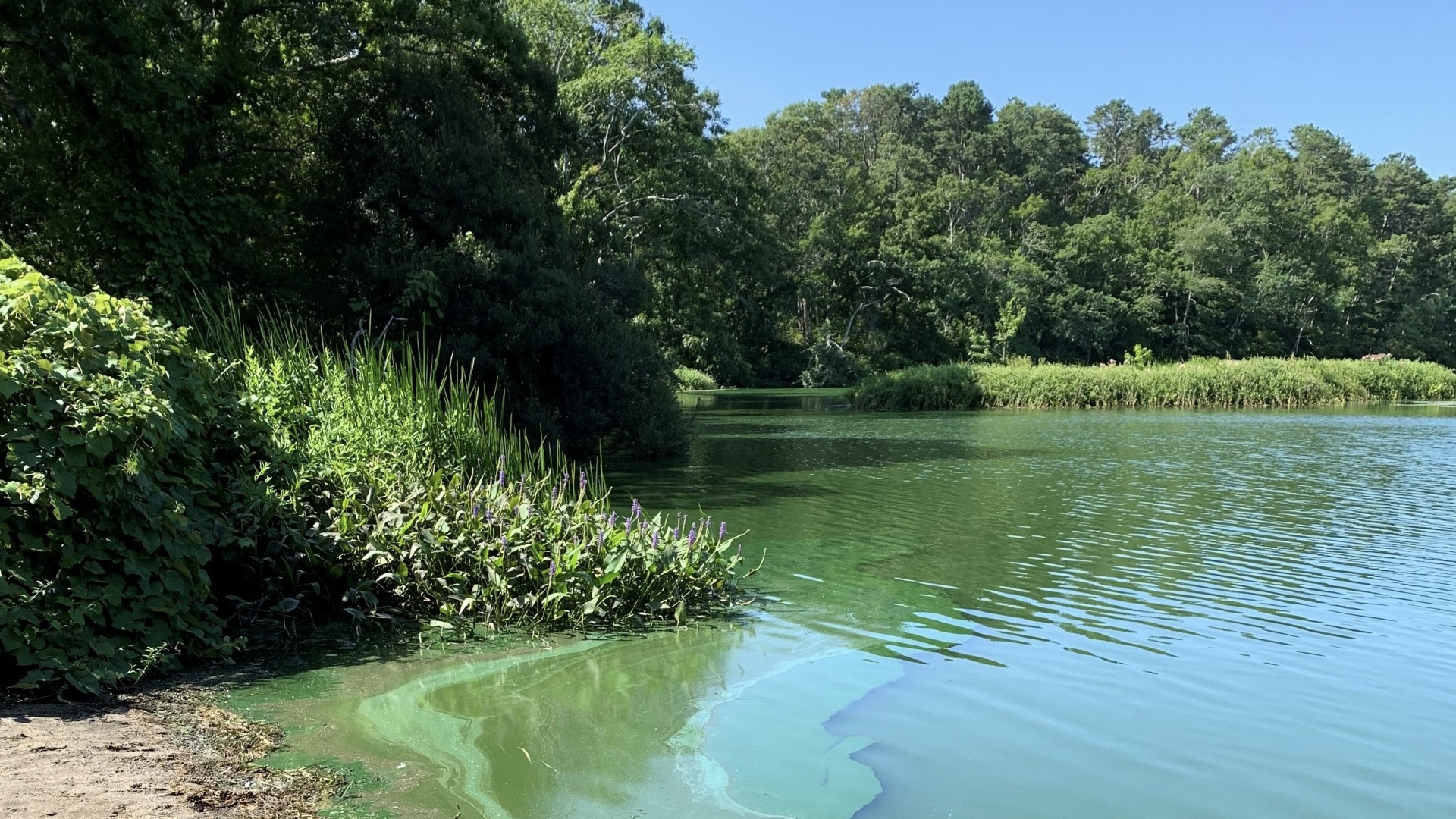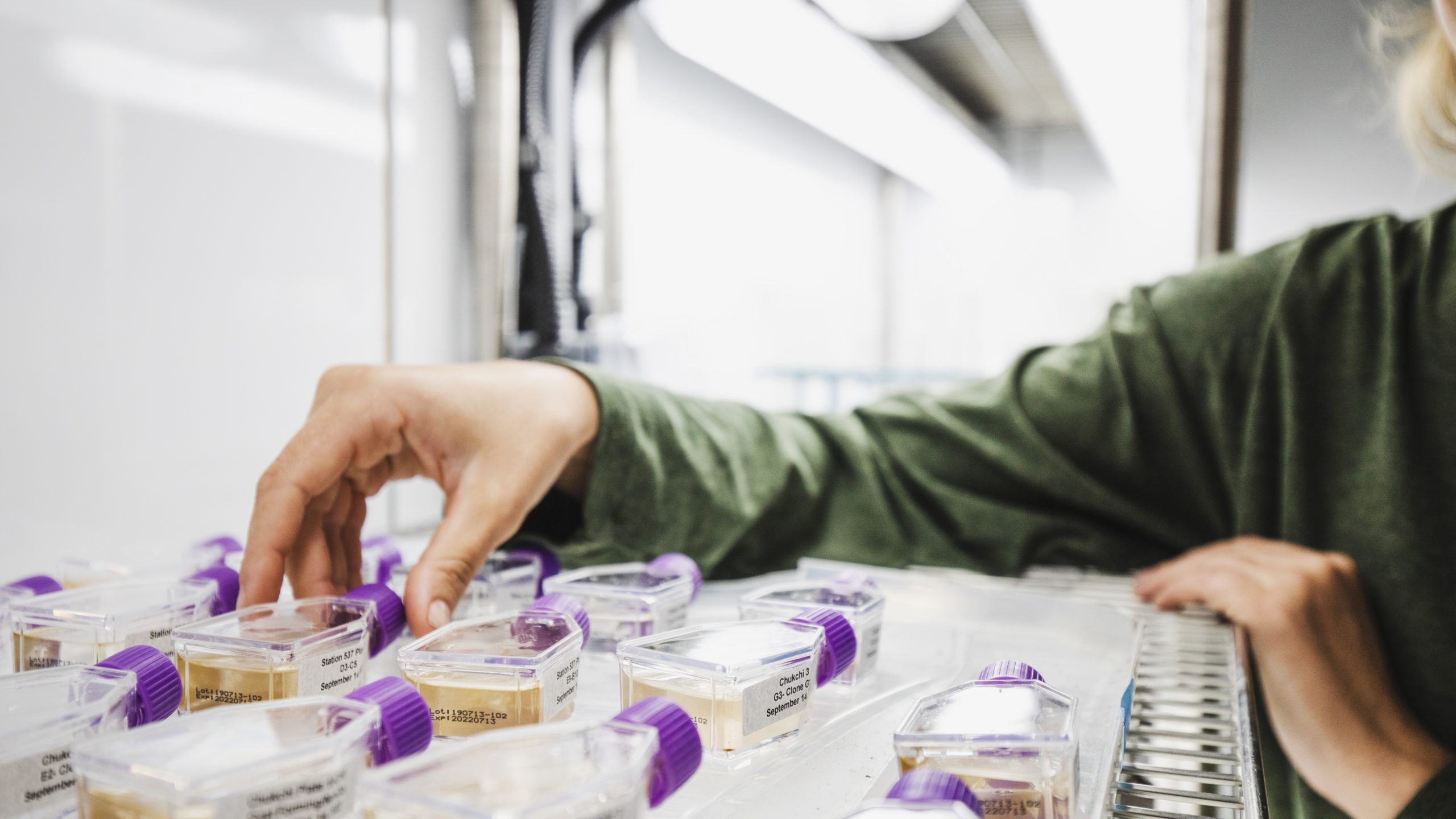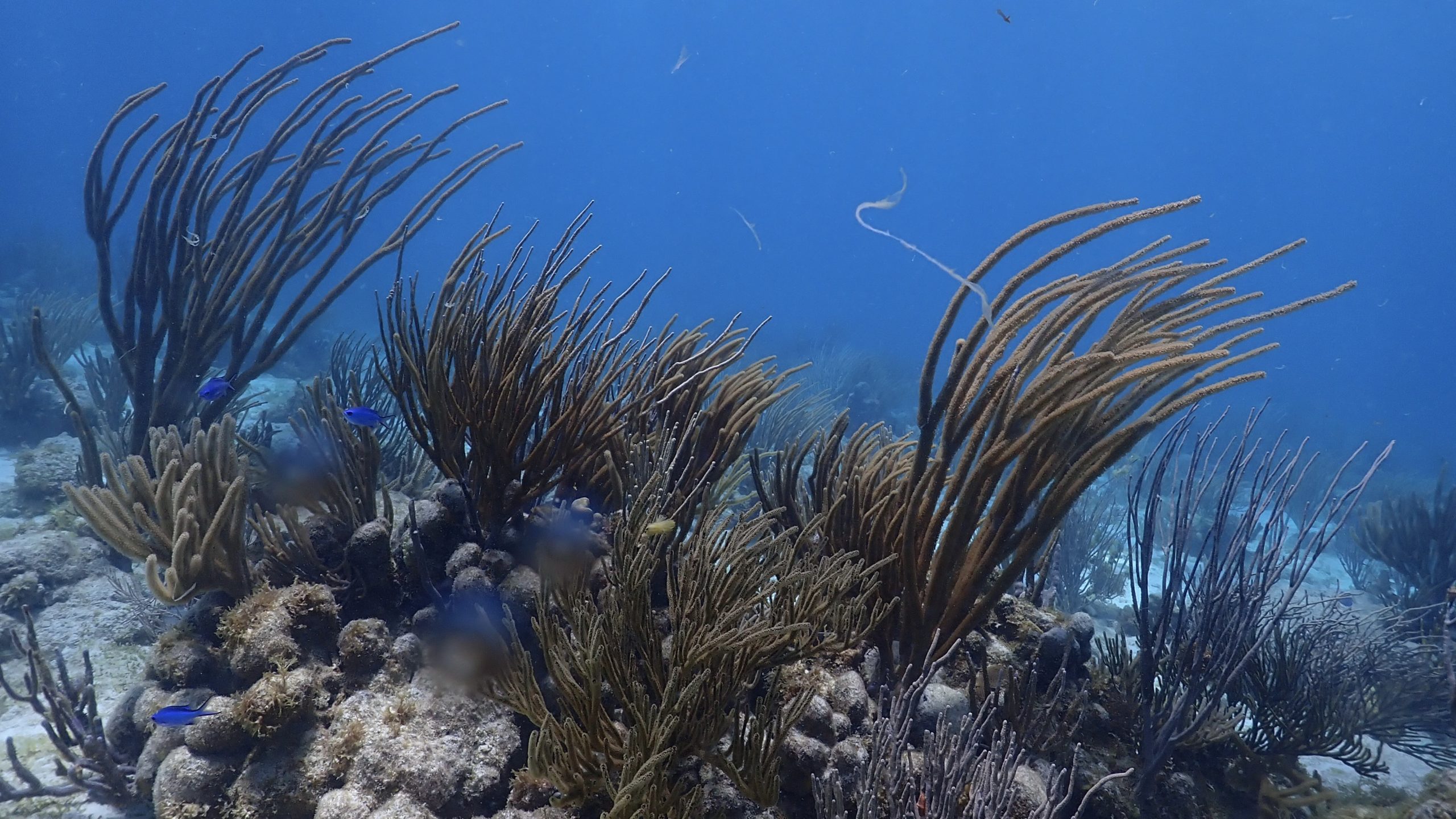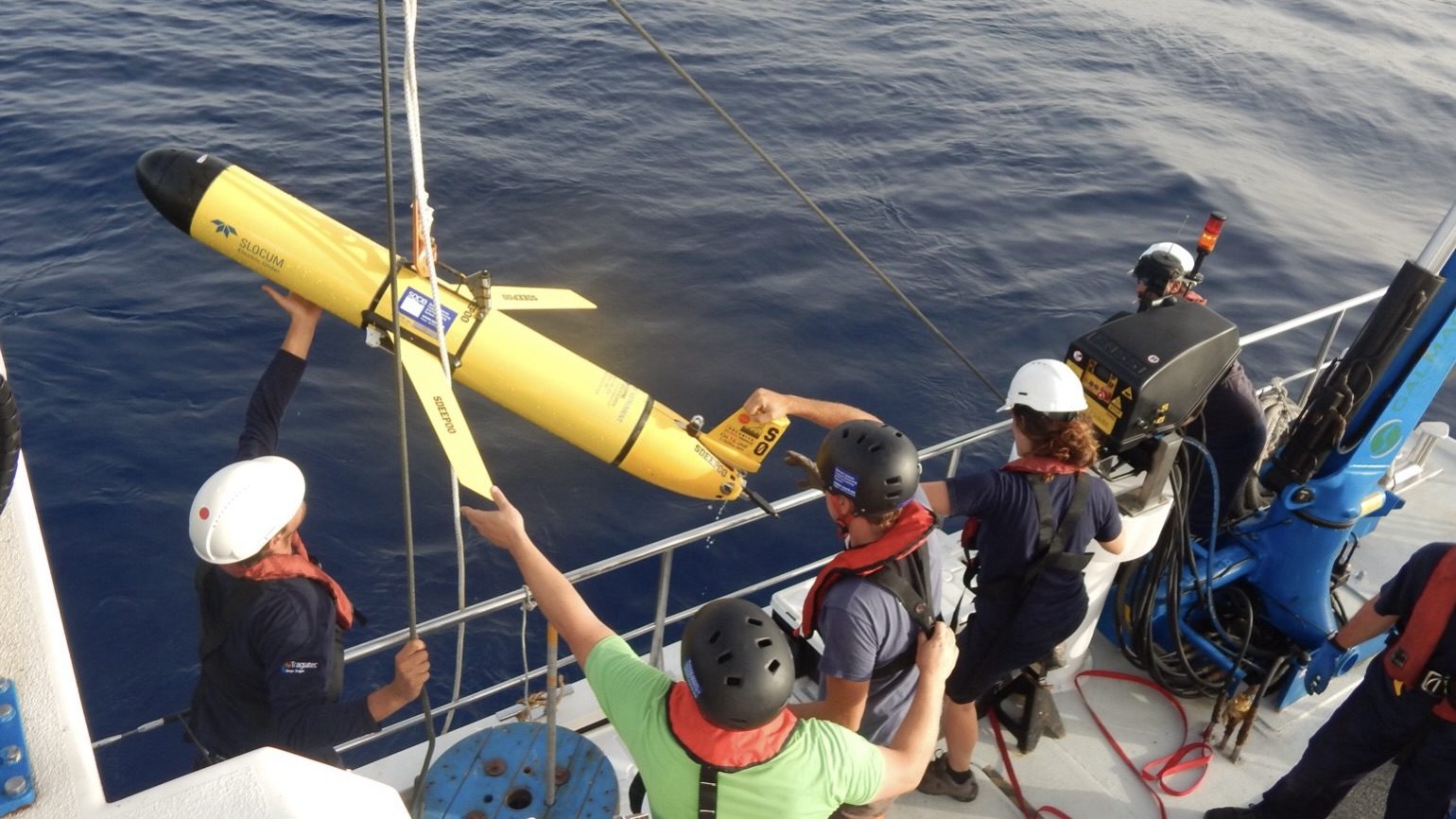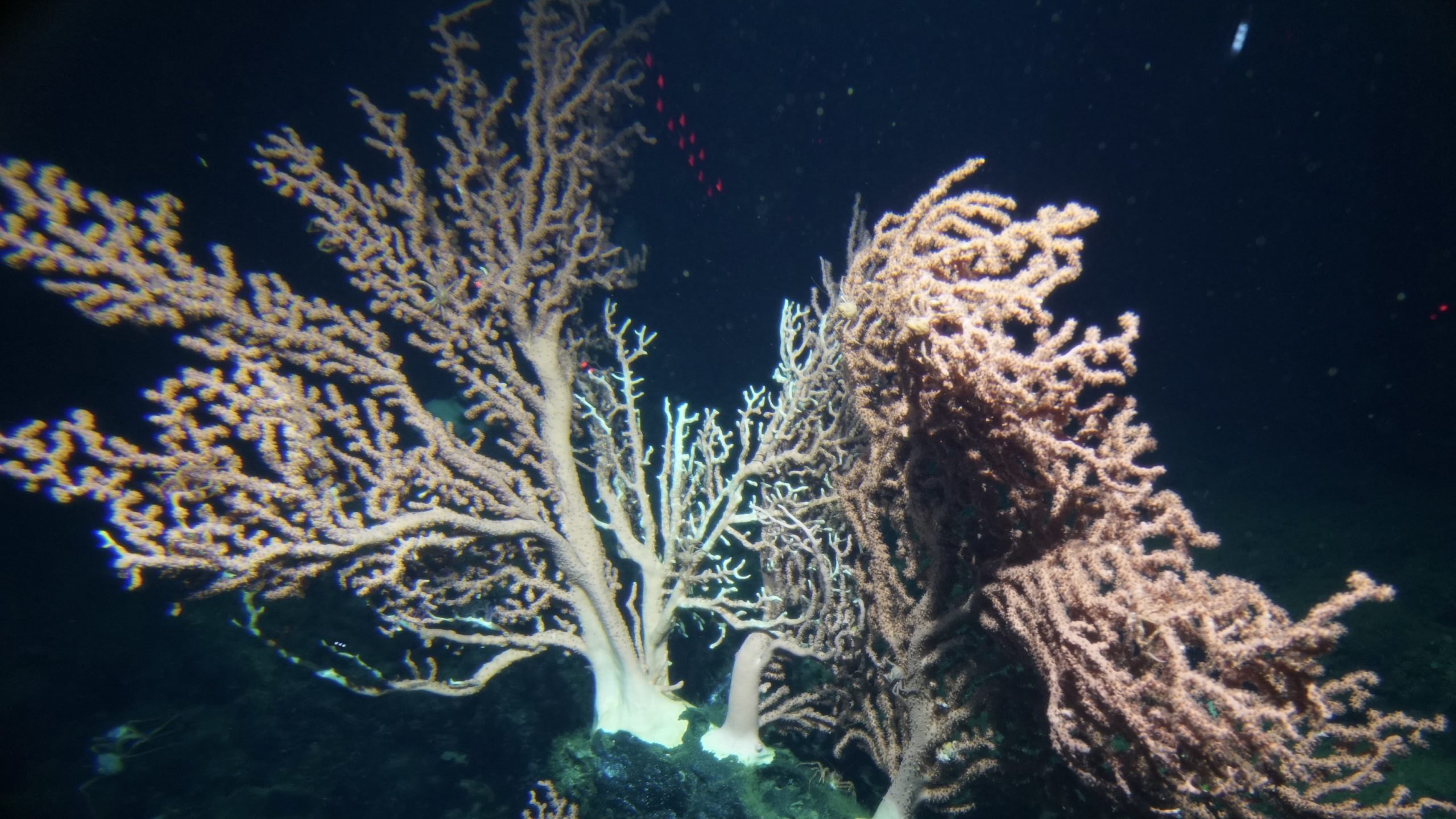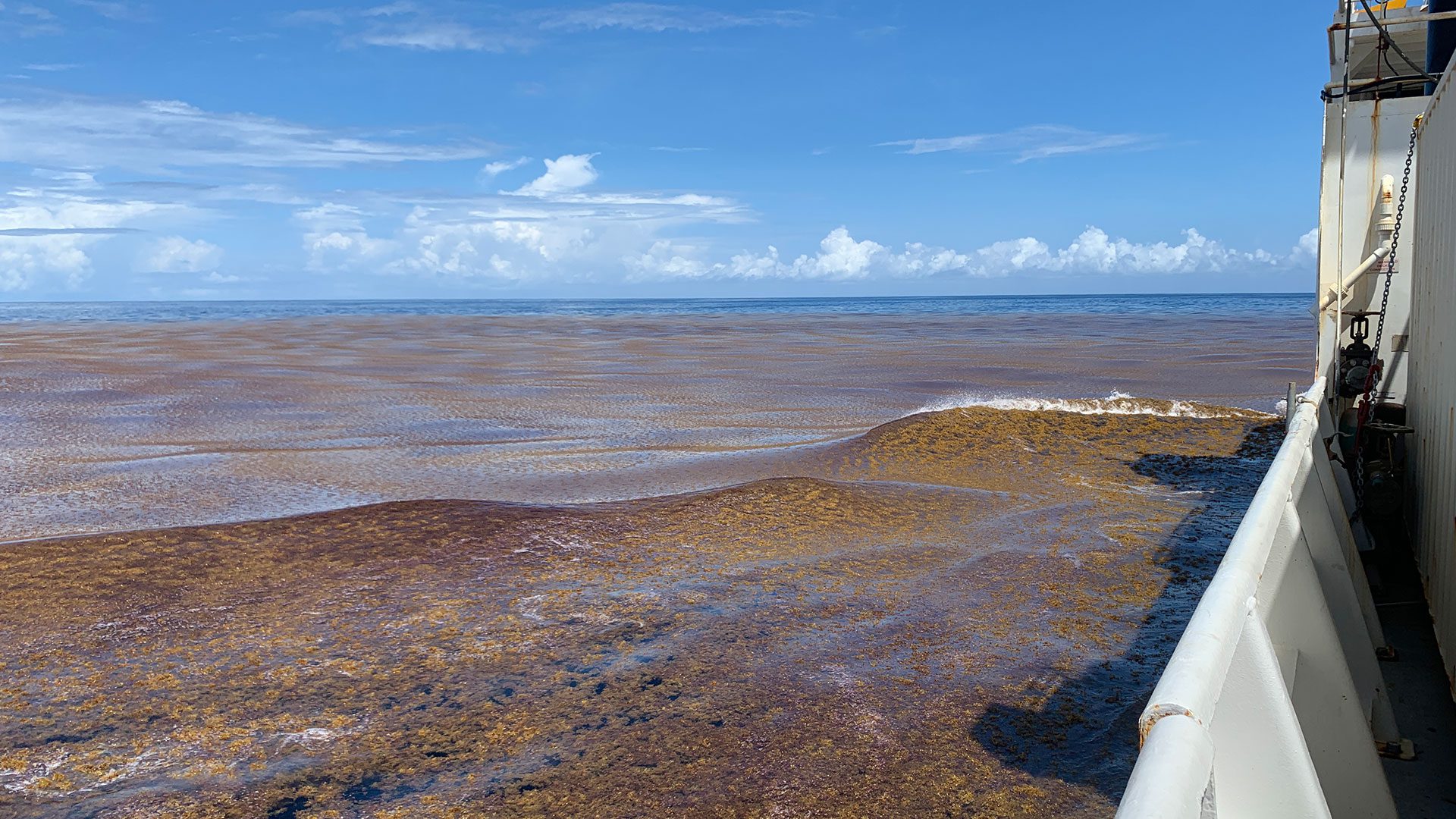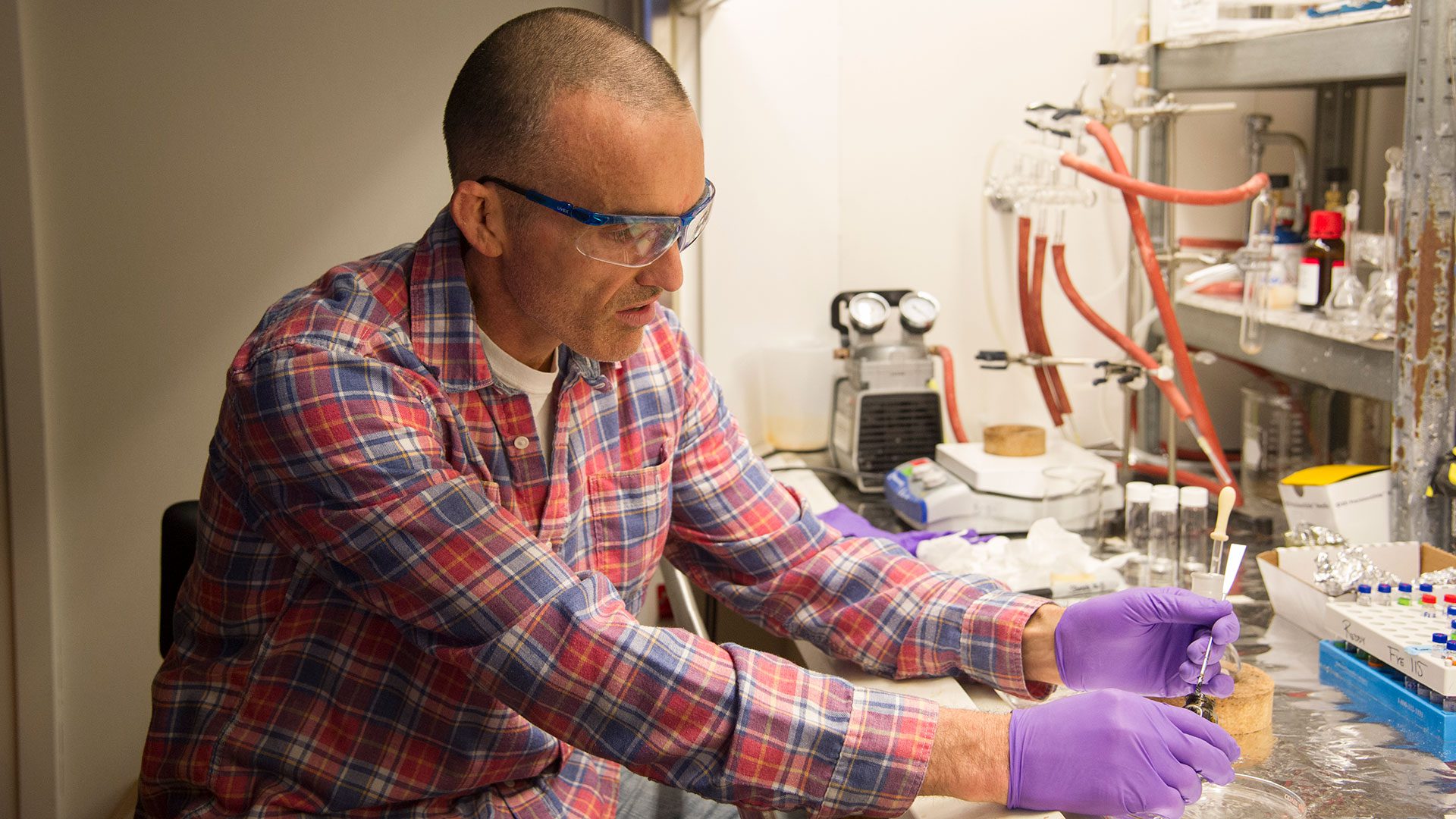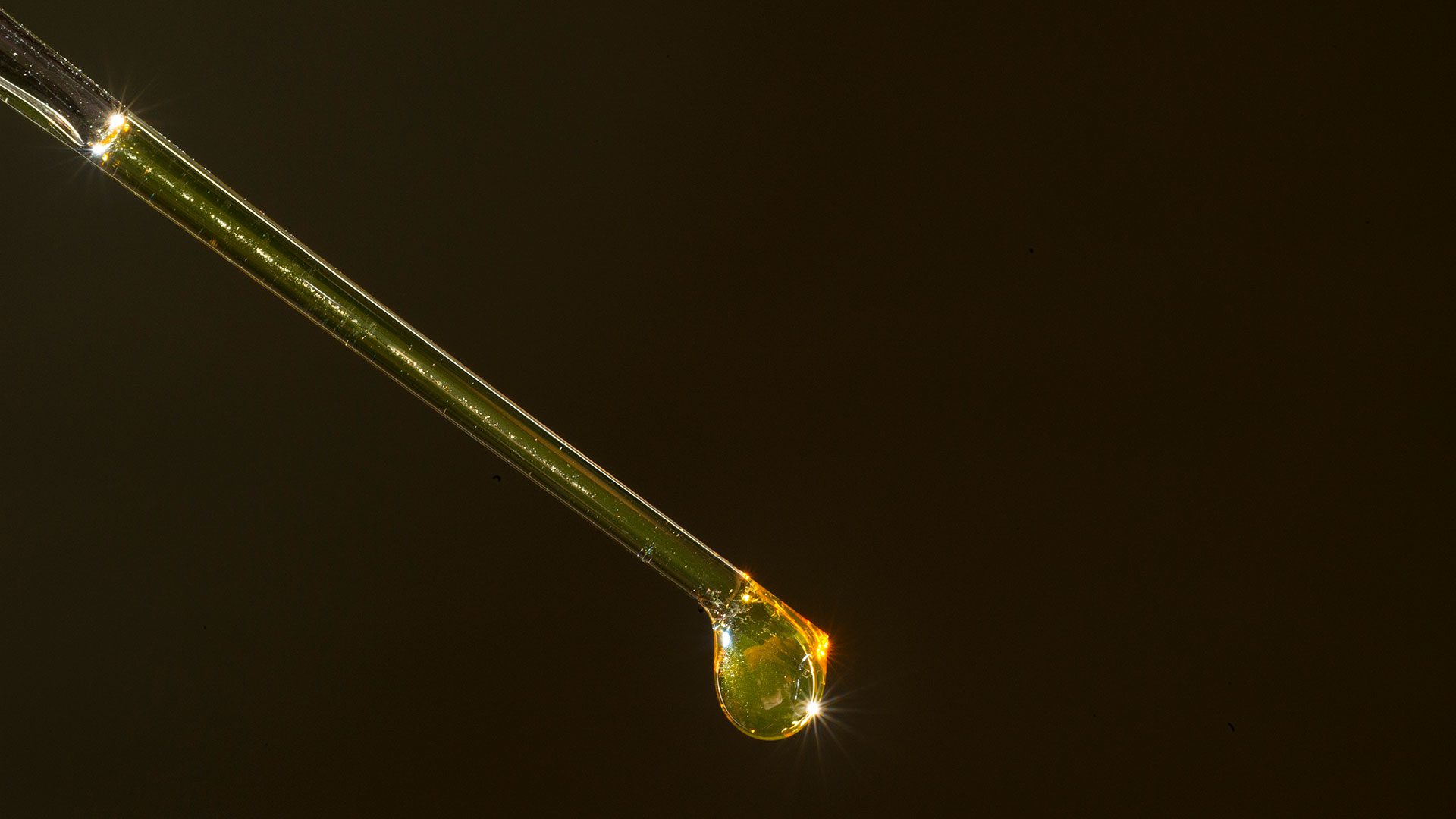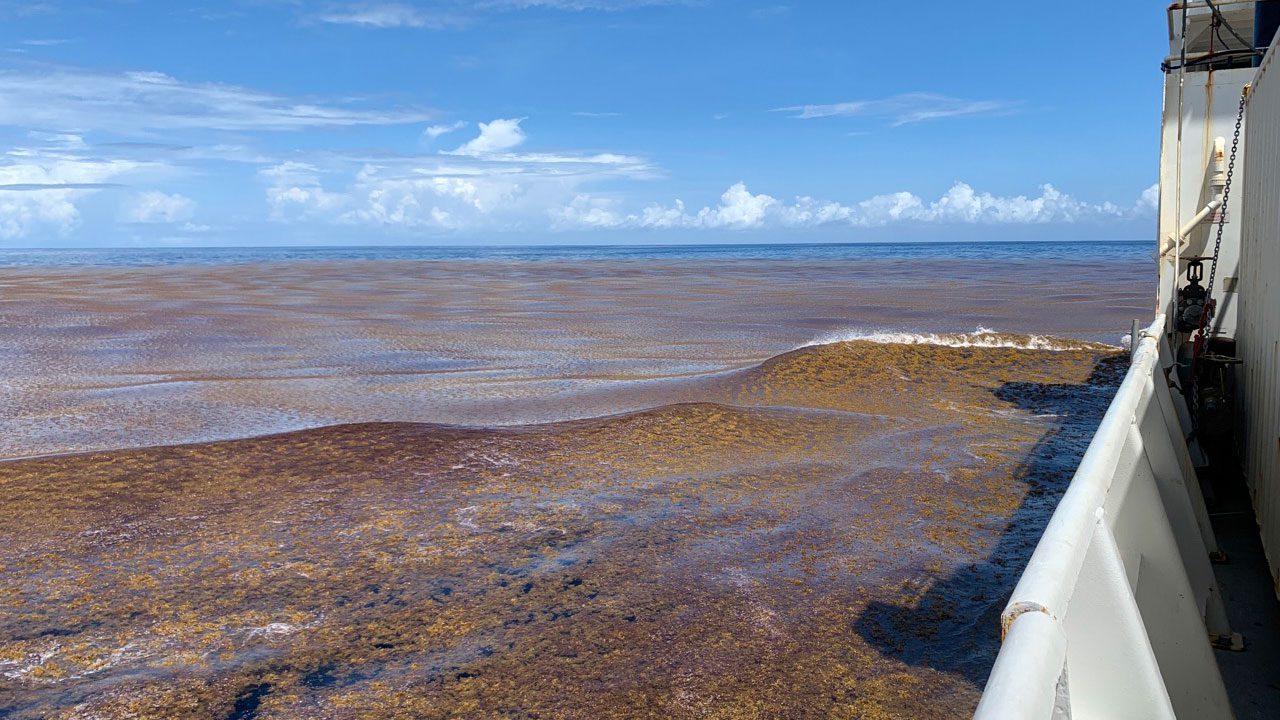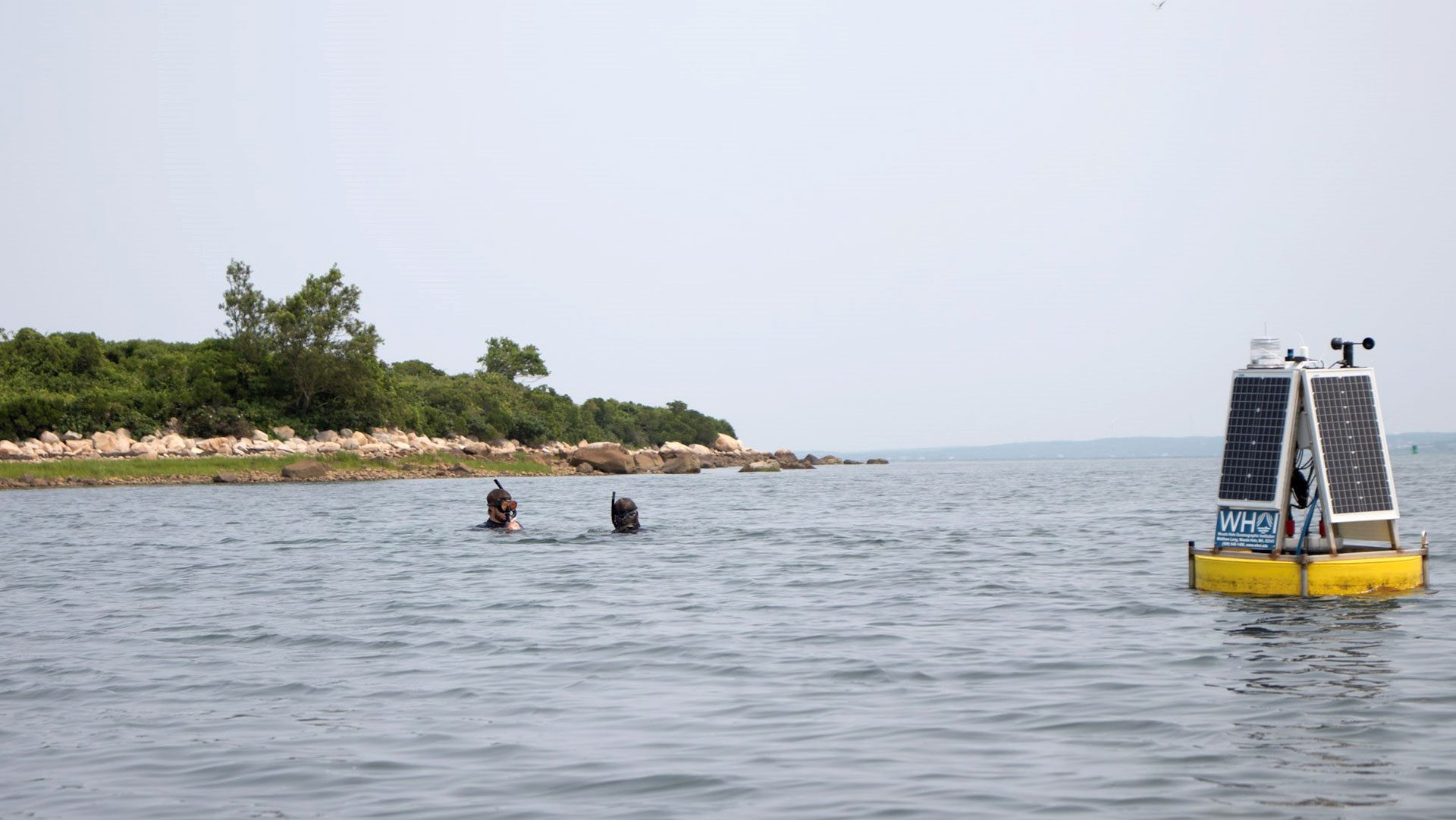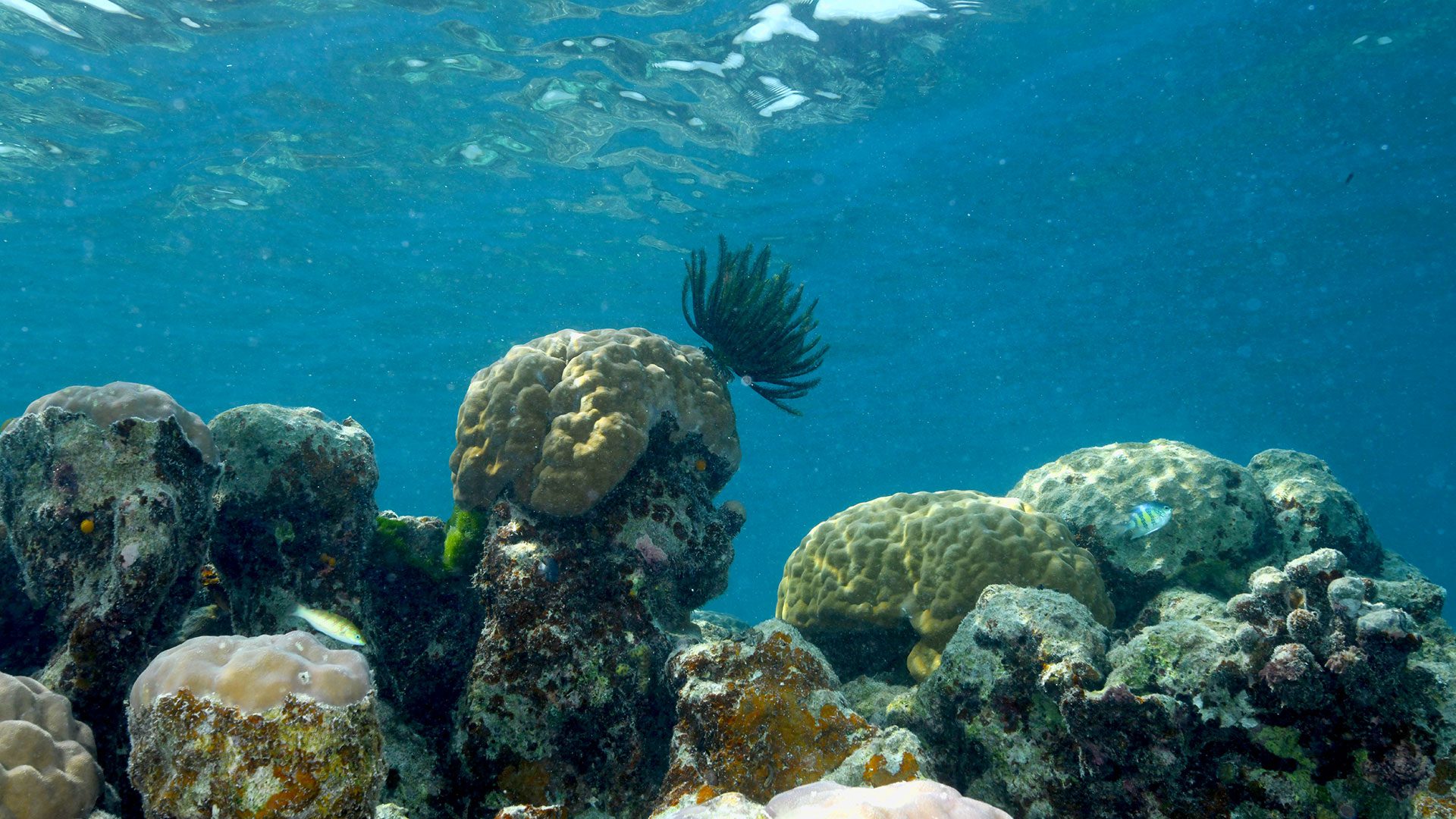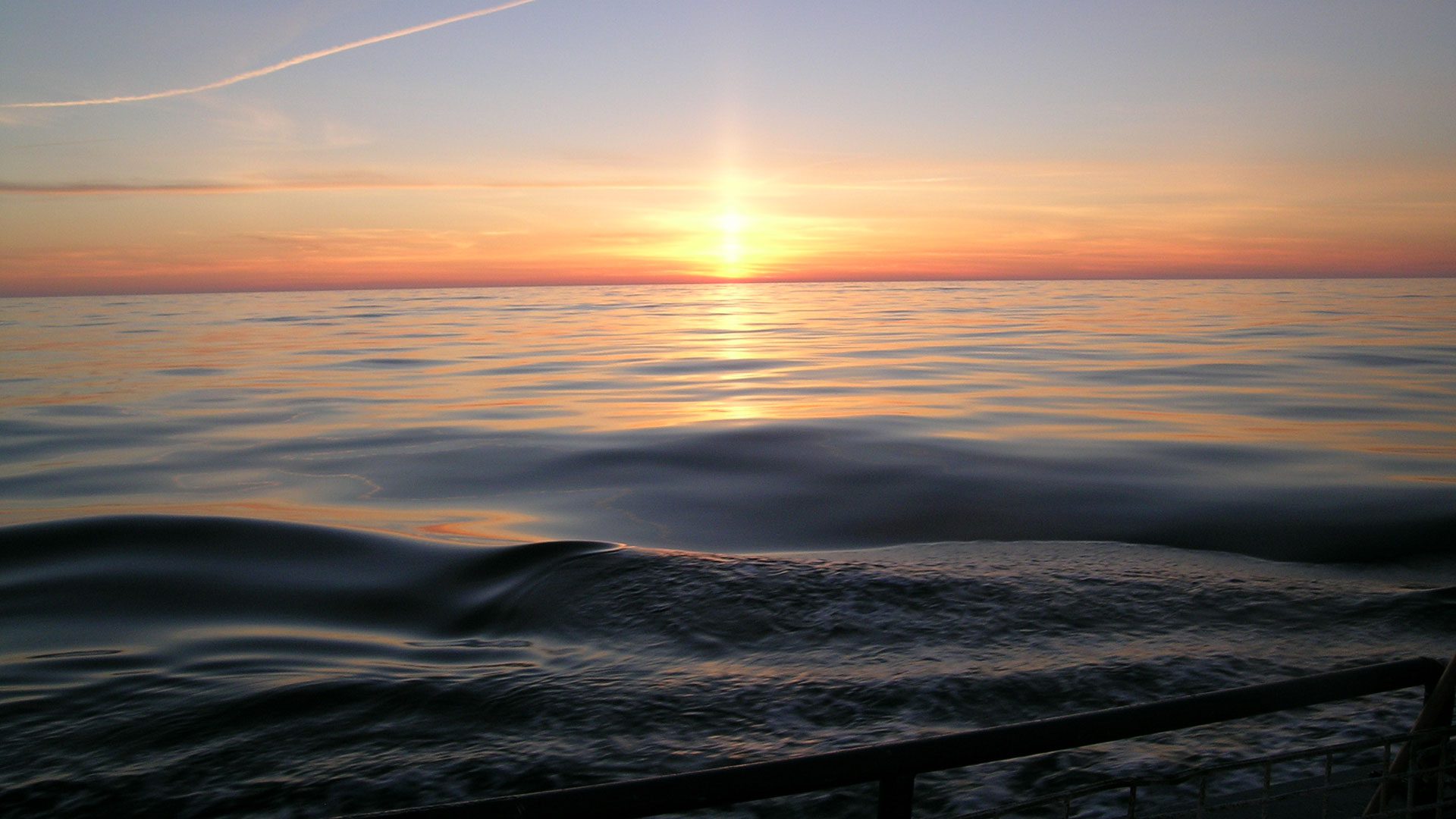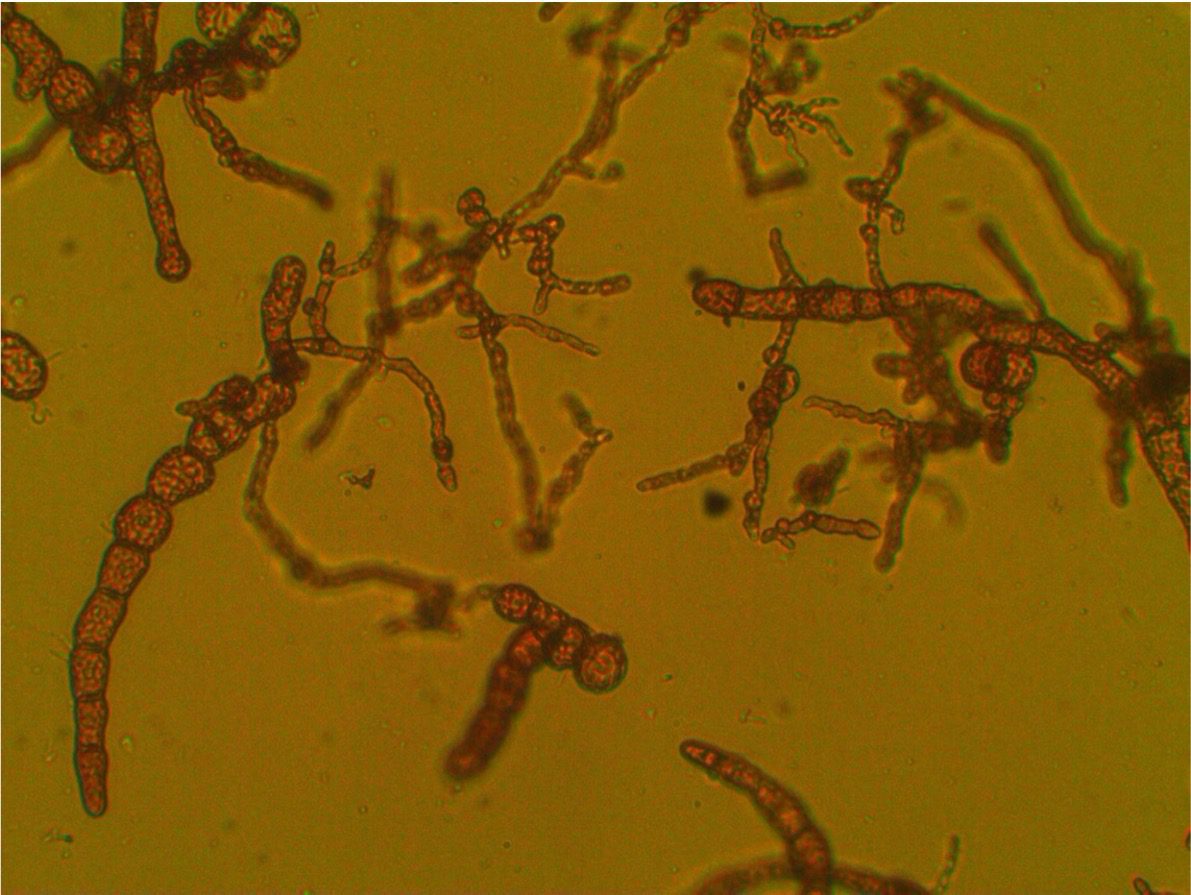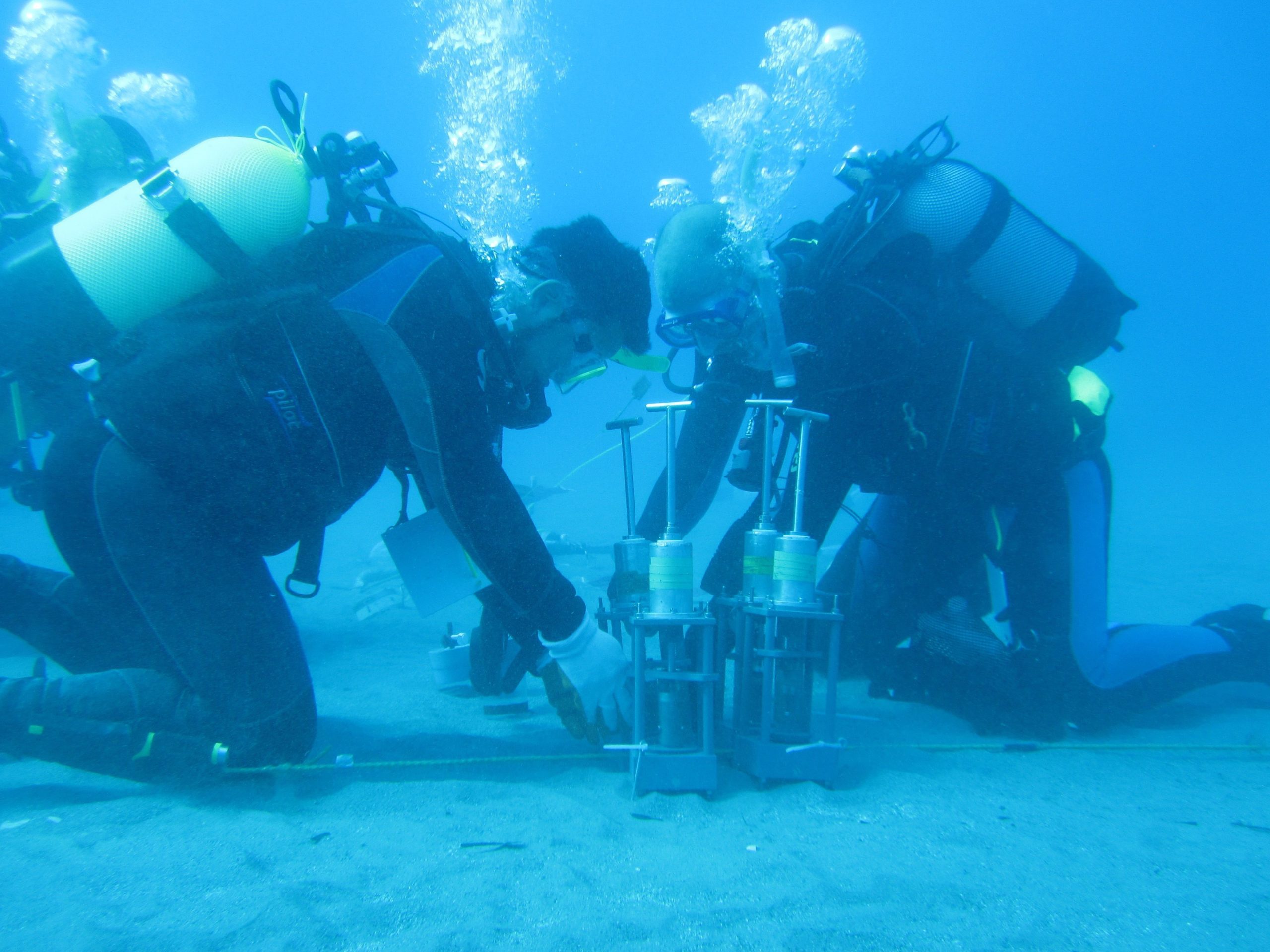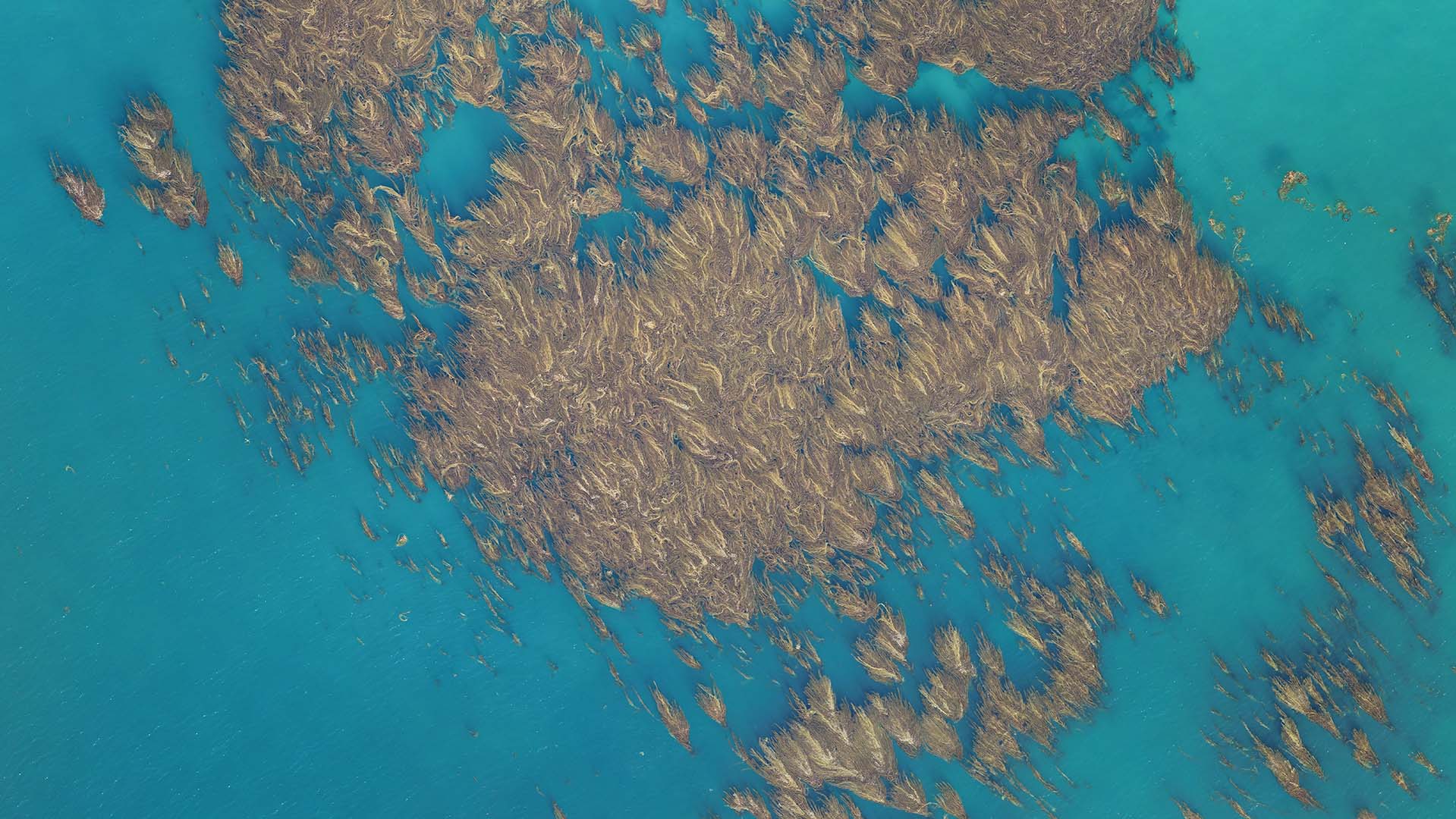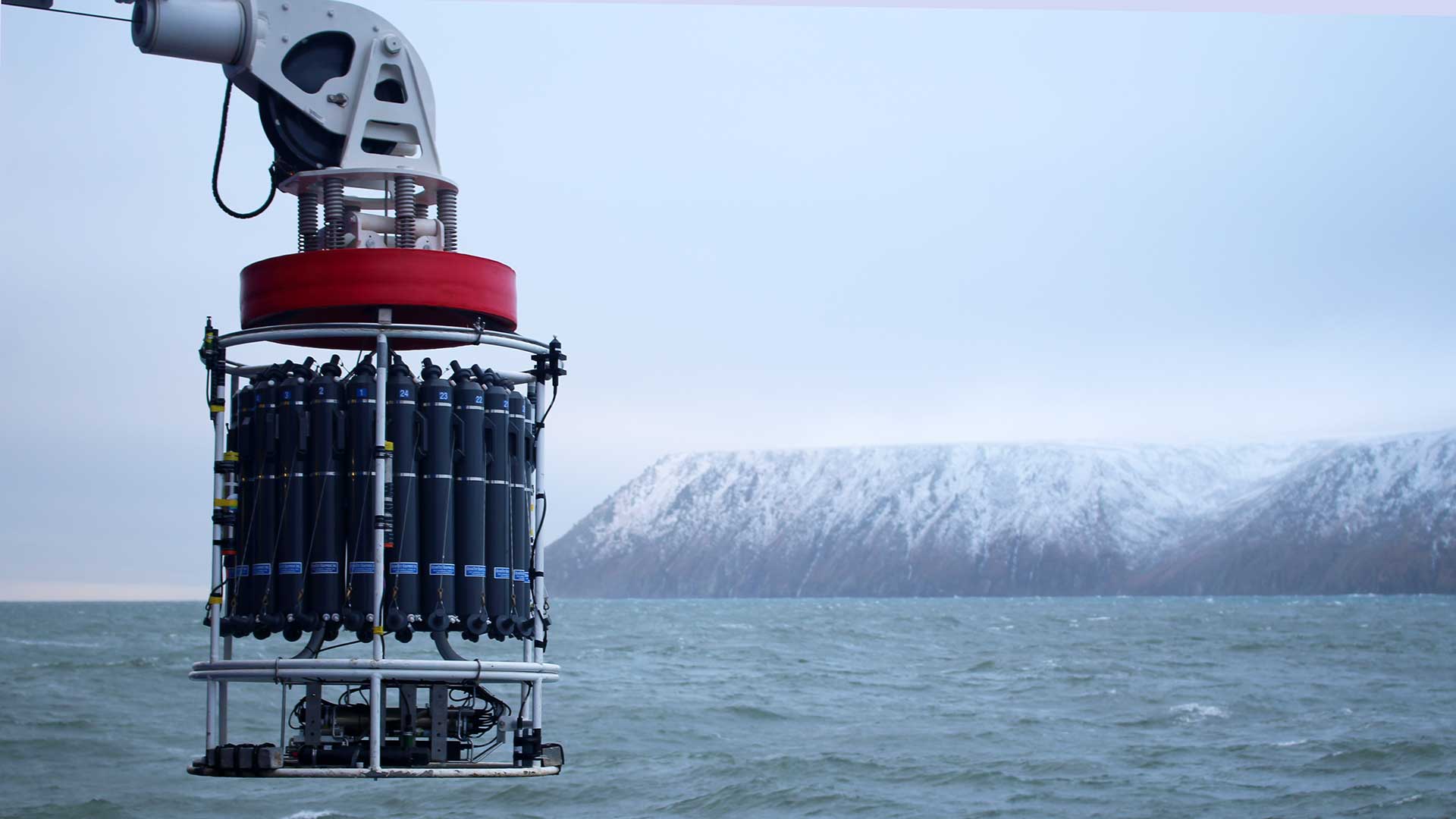News Releases
Vitamin B12 adaptability in Antarctic algae has implications for climate change
Woods Hole, Mass. — Vitamin B12 deficiency in people can cause a slew of health problems and even become fatal. Until now, the same deficiencies were thought to impact certain…
Read MoreResearchers Produce Two Biofuels from a Single Algae
A common algae commercially grown to make fish food holds promise as a source for both biodiesel and jet fuel, according to a new study published in the journal Energy & Fuels.
The researchers, led by Greg O’Neil of Western Washington University and Chris Reddy of Woods Hole Oceanographic Institution, exploited an unusual and untapped class of chemical compounds in the algae to synthesize two different fuel products, in parallel, a from a single algae.
Read MoreA ‘B-12 Shot’ for Marine Algae?
Studying algal cultures and seawater samples from the Southern Ocean off Antarctica, a team of researchers from Woods Hole Oceanographic Institution (WHOI) and the J. Craig Venter Institute have revealed a key cog in the biochemical machinery that allows marine algae at the base of the oceanic food chain to thrive. They have discovered a previously unknown protein in algae that grabs an essential but scarce nutrient out of seawater, vitamin B12.
Read MoreAirborne pollutants can be toxic to marine algae
A newly published paper by ocean scientists shows that airborne particles off the continents can have deadly effect on some marine phytoplankton. The findings, published in the online early edition…
Read MoreIron Fertilization in Southern Ocean Increased Growth of Algae that Absorb Greenhouse Gases, and Could Cool Climate
Scientists who fertilized a small patch of the Southern Ocean near Antarctica in 1999 to determine if the iron would stimulate growth of algae that consume carbon dioxide, a major greenhouse gas, say their results show that iron supply does control algal growth during the summer but that the long-term fate of the carbon remains unknown.
Read MoreWHOI scientists aim to improve the study of marine heatwaves
Researchers call for regional and context-specific approaches to these extreme events
Read MoreNew study highlights the correlation between live corals and fishing yields
Research led by Woods Hole Oceanographic Institution predicts lower fishing yields as corals struggle to survive
Read MoreSwimming crustacean eats unlikely food source in the deep ocean
Increased capabilities in the human occupied submersible Alvin open a window on a rarely seen behavior.
Read MoreNew harmful algal blooms report
Updated national science strategy for harmful algal research and response builds on major accomplishments, findings.
Read MoreThe Detection of a Massive Harmful Algal Bloom in the Arctic Prompts Real-Time Advisories to Western Alaskan Communities
The potent toxicity of the 2022 HAB event “posed an unprecedented risk to human and ecosystem health.”
Read MoreWHOI Scientists ‘read’ the messages in chemical clues left by coral reef inhabitants
What species live in this coral reef, and are they healthy? Chemical clues emitted by marine organisms might hold that information
Read MoreFor microscopic organisms, ocean currents act as ‘expressway’ to deeper depths, study finds
New research shows how tiny plant-like organisms hitch a ride on ocean currents to reach darker and deeper depths, where they impact carbon cycling and microbial dynamics in the subtropical oceans.
Read MoreNew Study: Deep Sea Sensor Reveals That Corals Produce Reactive Oxygen Species
A new sensor on the submersible Alvin discovered reactive oxygen species for the first time in deep-sea corals, broadening our understanding of fundamental coral physiology Woods Hole, MA — Just…
Read MoreStudy Clearly Identifies Nutrients as a Driver of the Great Atlantic Sargassum Belt
Findings could lead to locating nutrient sources and providing management options
Read MoreWHOI chemist given prestigious award
The award recognizes individuals who “materially increase the public’s knowledge of chemistry, chemical engineering, and related fields.”
Read MoreNatural Wax Holds Promise to Replace Petroleum in Cosmetics and Personal Care Products
Woods Hole Oceanographic Institution and Western Washington University Sign License Agreement for Upwell Cosmetics to Make and Market a Marine Microalga-Derived Wax
Read MoreThe Great Atlantic Sargassum Belt
Opportunistic sampling shows geographic scope of distribution, offer some of the first sampling opportunities
Read MoreExcess Nutrients Lead to Dramatic Ecosystem Changes in Cape Cod’s Waquoit Bay
The Bay Is a harbinger for estuaries worldwide, say researchers
Read MorePalau’s Rock Islands Harbor Heat-resistant Corals
Scientists studying reefs in Palau have identified subgroups of a coral species that exhibit remarkable tolerance to the extreme heat associated with marine heatwaves
Read MorePropeller Announces $100 Million Fund to Invest in Ocean-Climate Companies
Unique partnership with Woods Hole Oceanographic Institution and veteran leadership team deploys vital capital to blue economy ‘narwhals’ at the nexus of ocean innovation, science and technology.
Read MoreInnovative, new “road map” for kelp crop improvement
Woods Hole Oceanographic Institution (WHOI), the University of Connecticut, and Bigelow Laboratory for Ocean Sciences have executed a license agreement for a kelp germplasm, or collection of microscopic cells called gametophytes, containing more than 1,200 samples all developed and isolated by WHOI and UConn-led teams. Bigelow Laboratory’s National Center for Marine Algae and Microbiota plans to maintain, market, and distribute the germplasm collection for broad use.
Read MoreFluid Flow Stimulates Chemosynthesis in a Greek Salad of Hydrothermal Microbes
A new study uses an innovative approach to examine the bay’s shallow-water hydrothermal system and the production of microbes there in situ and near natural conditions as a model to assess the importance of hydrothermal fluid circulation on chemosynthesis.
Read MoreResearch suggests giant kelp has different factors that bear on its growth dynamics
The macroalga giant kelp, which is an iconic and important ecosystem-structuring species found off the coast of California and many other coastlines, can grow 100-feet long within 1-2 years. Now, researchers using novel remote sensing observations have found that different factors may bear on the spatial growth dynamics of the Macrocystis pyrifera kelp, which is the largest species of algae in the world.
Read MoreStudy Finds Growing Potential for Toxic Algal Blooms in the Alaskan Arctic
A warming Arctic presents potential new threats to humans and marine wildlife in the fast-changing region Changes in the northern Alaskan Arctic ocean environment have reached a point at…
Read More
